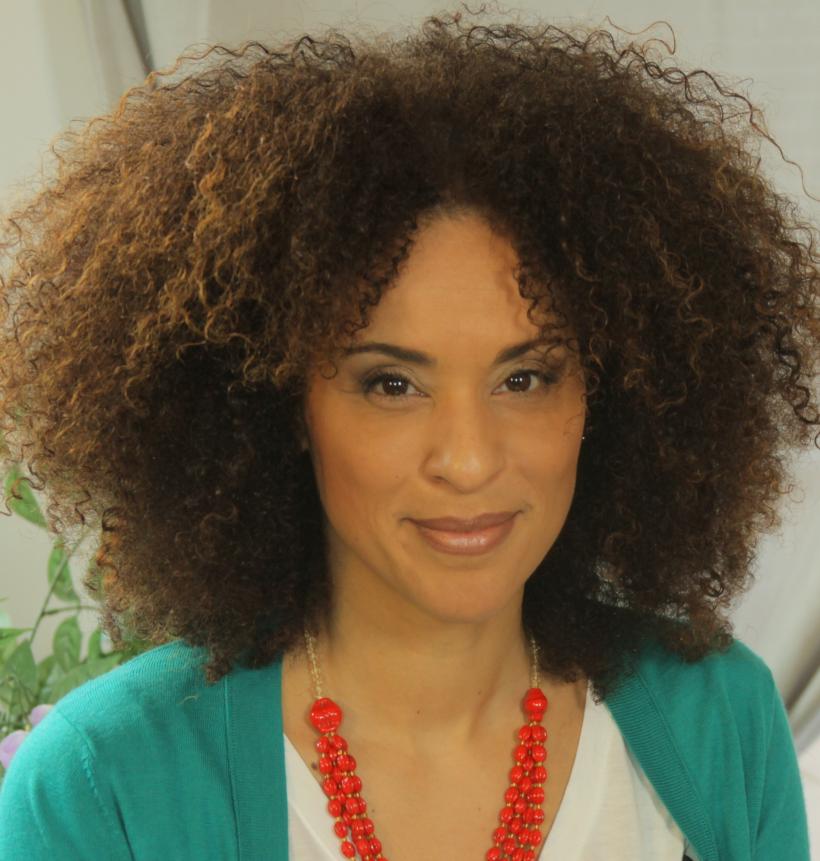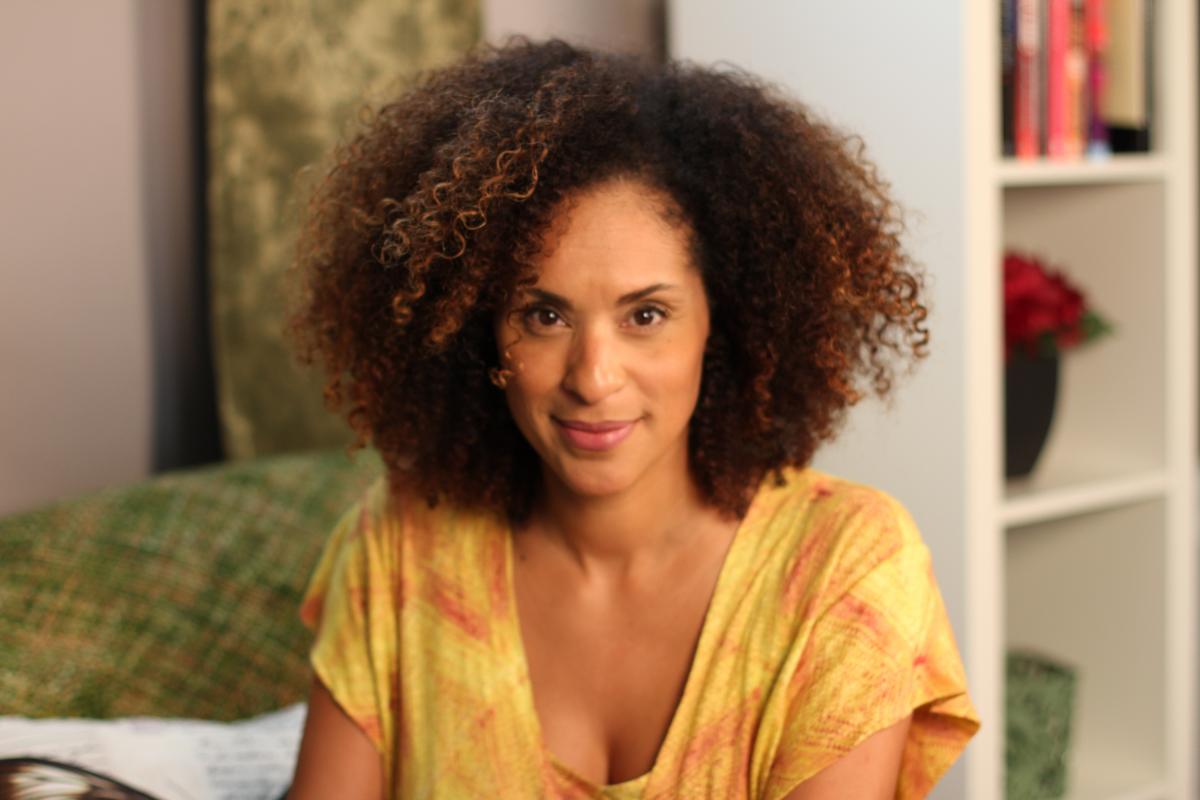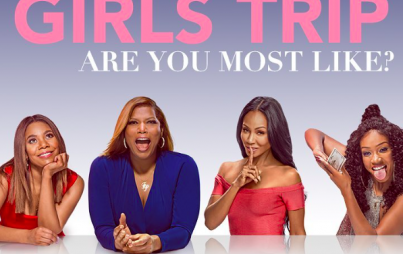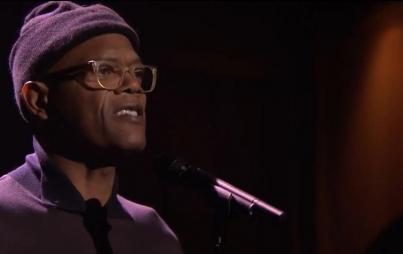
She was the debutante we all loved to hate . . . the original bitch of Bel-Air. Who knew that the young lady who breathed life into the Fresh Prince of Bel-Air's frosty cousin Hilary was equal parts talented, intelligent, and — dare we say — nice?
Now a wife and mom, Karyn Parsons is well aware of the impact that her former TV family had on a generation, but she's much more concerned with how she can help a new generation learn about their past. Her company, Sweet Blackberry, produces educational films about little-known black history heroes, and has been instrumental in educating kids of all ages. With the help of some of her Hollywood friends, from Alfre Woodard to Queen Latifah to Chris Rock, her message could reach millions more in the years to come.
We caught up with Parsons to talk about her evolution from Fresh Prince snob to black history advocate.
On The Fresh Prince of Bel-Air, the cast came across as a real family. Do you feel as though there was a family bond between you all during that time?
Absolutely — and it's a bond that has lasted, I must say. We bonded immediately; we liked each other the first week we worked together. When you spend six years together in one house pretending to be family, it's life-changing.
The character you played, the older sister Hillary, may be television's ultimate snob. What's your take on the character and her point of view?
The description that I had when I went in for the audition was that she was a model type. I thought that was a drag, and I wasn't sure how I was going to do it. I just did what I had to with the material — and they loved it. They were very collaborative people. Then, of course, the writing starts to find itself with the character.
When you look at the other members of the family — obviously Will Smith not included — they all grew up in that well-to-do environment. Yet Hillary seems like the one least affected by common sense or morality.
I guess her thinking was that she was always the first child and that Uncle Phil in particular was out of reality. He had this little girl and she played up the daddy, daddy, daddy thing really well. He was just making money for the first time and throwing it at his daughter who was not making any money, not recognizing what he was doing. I think he was just caught up emotionally. He made a monster!
He learned his lesson the hard way! You spoke about how the late great James Avery, who played Uncle Phil, was as much a father figure in real life to you guys as he was onscreen. Can you talk about that?
He definitely was a father figure for me, and I think he was to all of us. I saw him in that regard as a friend as well as a patriarch. I think a lot of people are familiar with the show, and especially the scenes he had with Will. I can still remember the scene where Will's father was not there for him emotionally and he kept asking, How come he doesn't want me? How come he doesn't want me? I remember when that happened how James really helped Will. For me he was around all the time, calling me daughter. I loved it.
On the flip side of things, I wanted to ask you your perspective on the actress who played your mother, Janet Hubert, getting replaced by Daphne Reid. Regardless of the circumstances, you guys did, as you said, have a family dynamic from the beginning. Was that a difficult transition?
It was a shocker, that's for sure. Nobody saw it coming, so in that regard it was difficult. But I have to say that Daphne, who came and replaced Janet, was so motherly and warm. She was just an incredible person. The whole thing that happened with Janet, there was a lot of anger around it, understandably I think based on the way things went down. But we were strong and we loved each other very much.
It had to be tough on Daphne as well, walking in on this train that was already running at top speed and trying to become a part of your family.
Yes, but in acting and as a person, Daphne could just walk into any room and be comfortable and at home. We had been flying for three years and she was catching on and catching up, and I must say it was a little bit of a challenge for everyone at first. But she got the role going and was always up for fun.
When the show finally came to an end, where were you mentally and emotionally? Were you ready to go, and was everyone else?
Well, it wasn't as tough as the year before. Will was a sweet guy and very thoughtful, and his career had taken off with Independence Day, Bad Boys, and Men in Black. Everyone had lots of plans for him, and he had too many scripts to look at and knew it was time for him to break free from the show. I think it was December of the fifth season or something like that, when he pulled the cast and crew aside and said we are going to do this season and we are going to do one more season, and that would be it. He did it so everyone had a chance to prepare themselves work-wise and mentally. And I thought it was such a thoughtful thing to do.
It was hard because nobody knew it was coming. Especially for me, it was harder after it was over, I think, because honestly I grew up as an only child, so I suddenly had all these siblings and a big family and an attentive father, which I never had. That's not a good impression of my dad, but he was never attentive or around. I suddenly had this rich household that I went to every day. At the time, I was in my early 20s, and when I went home I went to my dogs. I didn't have a family at home, so for me it was a real crash of the plane.
When it was over I was like What do I? Where am I? I moved into a house that I bought and it was the same thing with Alfonso [Ribeiro, who played Carlton], who moved into a new neighborhood. It was really a period of adjustment. He was so busy for so long doing one thing. It was a change, and it was really hard.
Were you entirely focused on continuing to act, or were you already thinking of doing different things behind the scenes? What were your goals?
I had to sit down and contemplate what it was that I really wanted. When I started this show, I was six years younger. I was a very different person than I am right now. It took about two or three more years before I realized I wanted to write. And that's when I started shifting gears with the pen instead of getting an acting job. Then somewhere along the line after I met my husband, I started Sweet Blackberry.
Yes, Sweet Blackberry is something I want to talk about. What brought to you the idea of launching anything even remotely like it?
My mother was a librarian and she worked all over Los Angeles. When she was working before she retired, she headed up the Black Resource Center at Library South Central Los Angeles. She would watch Fresh Prince at the time, and she would call me and share stories about black achievements and people in history she came across, using this great archive she had.
For example, there was the story of Henry "Box" Brown, a slave who literally mailed himself to freedom in a box. He shipped himself off from Virginia to Pennsylvania, and because it was a cross of faith line, when they opened the box, he was a free man. I thought that was a fascinating story. And then when I spoke to my friends, they said they hadn't heard of it, and I said to myself, This is such an obvious book. Then I forget about it and went back to work.
I never got serious about the project until I was pregnant with my daughter, my first child. And my husband said I needed to stop talking about this so much and do something about it. So I started talking to people about how I might do something like this, and what it would be. I wanted to make it engaging for kids. One of the first films we produced had Queen Latifah narrating it, and Chris Rock is narrating the one that I'm working on right now.
You mentioned you were pregnant when this project went from potential to reality. Do you think that was part of the reason why you had the extra motivation to green light this?
Oh yeah. I started thinking a lot about my responsibilities as a parent to supplement my child's education. As a new parent, I didn't know anything about what they teach them in school. But if I wasn't taught any of this history, how could I expect them to learn about it? I wondered what I would have to do in my child's life to make sure she gets a well-rounded education. Then I started thinking more about Henry "Box" Brown and his story and how much I wanted to do that. [Brown's story would become the company's first DVD release, The Journey of Henry "Box" Brown, narrated by Alfre Woodard.]
Why has this project become a passion for you?
This has become my baby and I feel very strongly about it. I started it in kind of a plain and innocent way, and the more I talk to people about it and have discussions, the more I have stronger feeling about wanting to talk to my kids about growing up, and witnessing how they see the world. We can teach the country about the contributions of African Americans. You see a handful of stories told in one short month of February, and I think one of the messages that really comes across with that, and is very unfortunate, is that once in a while a great black person comes along. That to me is a dangerous and terrible message, and so far from the truth. A lot of this is not in the textbooks, but if we look at the history of this country, we see how much black people contributed to its fabric. It changes your view of the value of black people, and I think being a black child, it makes you look at yourself in a different way.
I don't think people are meaning to have certain judgments, but when history is taught to you, black people are excluded from it. And the story of a black person's history is pretty incredible since we had slavery here for so long, and Jim Crow. That we were able to overcome such huge obstacles is inspiring for everybody, and I think that is important for kids to know, too. To see the tremendous greatness offered to people through these obstacles.

You launched a Kickstarter campaign to fund a film about Janet Collins, the first black prima ballerina. Why did this story stand out to you so much?
I was really anxious to get this story done for a while. She performed as a black artist five years before Marian Anderson and it was a huge deal. At 15 years old, she auditioned for the Russian Ballet, the cream of the crop, and they said she could join their company if she performed in whiteface. Here's this teenage girl, and she turned it down. She was crushed, but she took that and she worked even harder so she could be accepted. And she was after that. She became a star, and with everything that she did after that, including Broadway, she just caught fire. Everyone saw her and started saying they wanted her. It was groundbreaking at the time, and there was always this thing that black girls don't have the body for ballet. It was a very elite kind of separation. I thought her story of determination was so great.
Where can people find more information about Sweet Blackberry and follow what is going on with you?
You can definitely visit our website, Sweetblackberry.org, to see more about what we are. You will also learn about our previous work and what's coming up soon. We are also on Facebook and Twitter.



